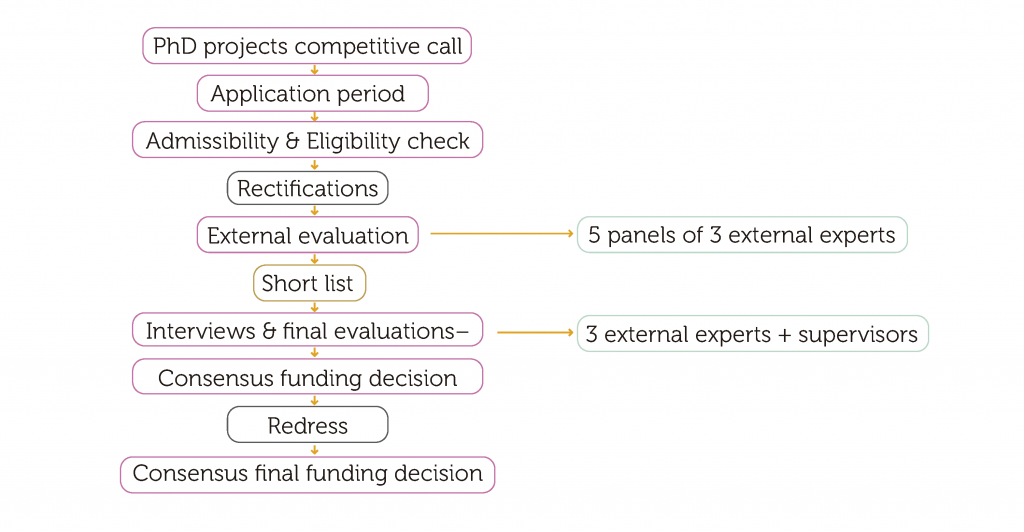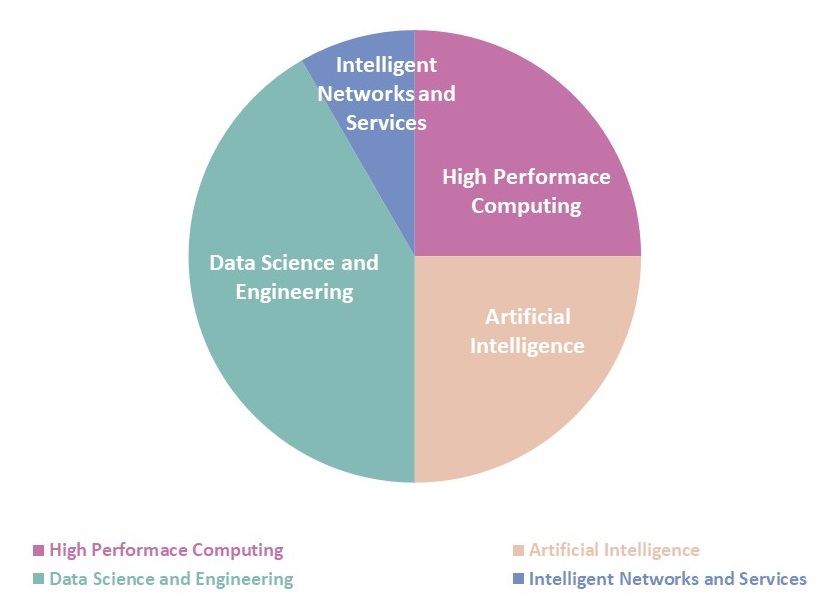
Please read all the documents carefully. If you have any queries about the application process, please check the Frequently Asked Questions sections first. If you are still unsure about any aspect of the process, you can contact the Programme Office (PO) via email at: international.citic@udc.gal
All queries and communications should be addressed to the PO and not to the individual PhD project supervisors of each PhD project. Supervisors have been instructed to redirect all queries to the PO and to avoid all contact with applicants during the selection phase. Failure to do so will result in the exclusion of both parties and the corresponding PhD project.
- Early-Stage Researchers: According to the MSCA definition, candidates should have less than four years’ research experience, measured as full-time equivalent research experience, and not hold a PhD degree. Full-time equivalent research experience is measured from the date when a researcher obtained the degree entitling her/him/them to embark on a PhD, either in the country in which the degree was obtained or in the country in which the researcher is recruited or seconded, even if a PhD was never started or envisaged.
- MSCA mobility rule: Candidates must not have resided or carried out their main activity in Spain for more than twelve months in the three years immediately prior to the deadline of each call. Short stays such as holidays will be not taken into account.
- Be entitled to enrol in a PhD at CITIC/Universidade da Coruña: In accordance with UDC internal regulations, candidates must hold a Bachelor’s degree and a Master’s degree, equivalent to 300 ECTS in total, 60 of which should correspond to a Master’s degree (or equivalent credit system for degrees awarded by universities outside the EU). Experts from the UDC International Doctoral School (EIDUDC) will perform a pre-admission eligibility check on all applications.
- Be of any nationality. No age restrictions apply.
The selection process is designed to ensure the integrity, fairness and transparency of the programme. The process will comprise six main stages and an additional redress stage to deal with any complaints or appeals following communication of the provisional decision of the Selection Committee.
Evaluation criteria for both stages (external evaluation and interviews) are based on candidates’ academic and research excellence. Full information about these criteria can be found in the Guide for Applicants.

The 3-i ICT first call offers 8 interdisciplinary PhD projects, organised around CITIC’s five main areas of research. All PhD projects have a main supervisor from CITIC, specialising in ICT, and one secondary supervisor from a different academic discipline.

Selected ESRs will be employed by UDC under a 36-month contract of employment in which their status as MSCA fellows will be acknowledged.
3-i ICT fellows will receive full social security coverage in compliance with Spanish legislation, including unemployment benefits, full social healthcare coverage, maternity, paternity, fostering and adoption leave, and paid holidays. In accordance with CITIC internal regulations, employment and working conditions will ensure researchers a good work-life balance. Fellowship contracts will establish a working week of 37.5 hours.
The gross annual salary of each ESR will be €24,516.12, corresponding to a total annual remuneration cost of €32,508.00 (€2,709.00/month). ESR salaries will include personal income tax arrangements, social security coverage and social benefits (parental leave, pension fund contribution, severance payment, unemployment benefits, and health and accident insurance).
For more information, see the Guide for Applicants.
Deadline: 20 October 2024 23:59 h (CET).
The application period is now closed; thank you very much for your interest.
More information and support documents:
- Guide for applicants, including information about the evaluation and selection process, redress procedure, and working conditions.
- Application form
- CV template
- PhD projects summary
- 3-i iCT brochure
- CITIC brochur
Final list – Granted PhD position (28 September 2022)
Final list – Reserve candidates PhD position (28 September 2022)
Provisional list – Final score PhD position (14 September 2022)
External evaluation results – amendment (17 August 2022)
Final list of admitted applications – amendment (30 June 2022)
Provisional list of admitted applications – 1st call for candidates
Frequently asked questions
There are no questions… yet.
You can send yours to international.citic@udc.gal
